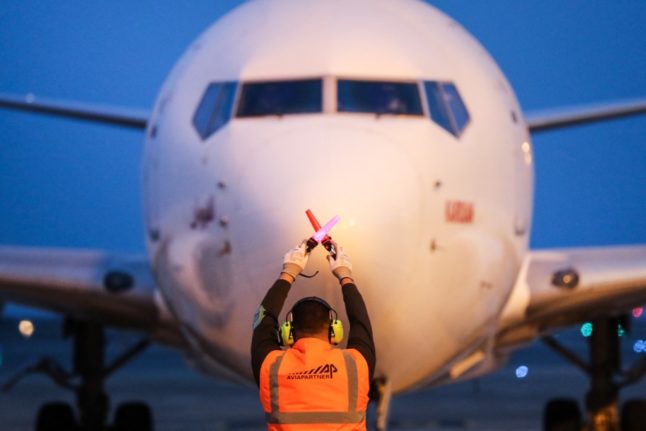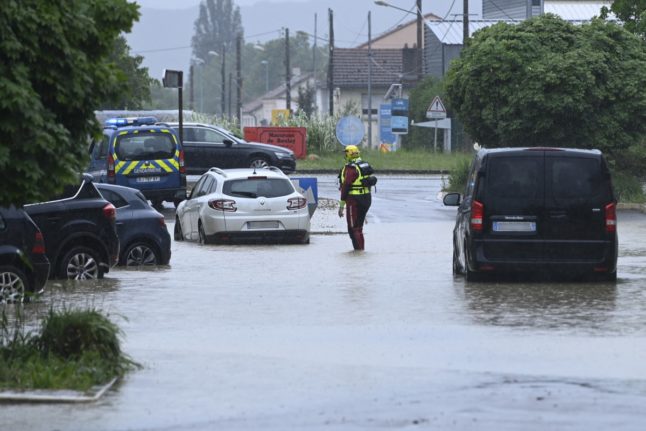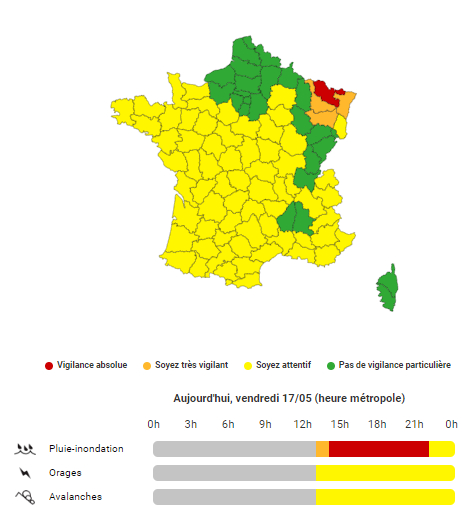But, if you’ve been looking for a flight to or from France in the summer, you’ll notice that the prices are higher than in previous years, and even more than before the pandemic.
But it’s not just in France where these crazy price rises have been recorded, it’s happening all over Europe.
Rising prices
Ryanair’s outspoken CEO Michael O’Leary warned us last summer that the end of the €10 plane ticket was nigh – and so it has proved, as airfare inflation continued to rise.
On average, plane tickets were 20.1 percent more expensive in March 2023 than they were in the same month in 2022. International flights were 19.8 percent more expensive in April 2023 than a year previously, while domestic flights cost 15.5 more over the same 12-month period.
Prices increases have accelerated in the first three months of 2023, France’s civil aviation authority the DGAC said, jumping 23.6 percent.
Prices for domestic flights are now 31.1 percent higher than April 2019, before the Covid-19 pandemic, while international flights are 32 percent more expensive, according to figures from the Direction générale de l’aviation civile (DGAC).
Prices between French airports and other destinations in the European Economic Area, including Britain are up 26.2 percent; while flights to North African countries are 7.8 percent more expensive.
Cause and effect
Several factors explain the increase. One is the unexpected rush back to travel after the pandemic, which continues to take the industry by surprise – which lead to chaos at some European airports last summer due to staffing shortages.
Despite the return of passengers, business travellers have not come back in the same numbers in the post-pandemic world – in part because firms and executives have discovered the joy of Zoom. But the sluggish recovery has hit the bottom lines for certain flights, and prompted some airlines to abandon routes altogether.
The price of oil is often put forward by companies, although the price of a barrel is falling. Fuel costs represent around one third of the price of a ticket.
The International Air Transport Association (IATA) has indicated that the price hikes are due to the increase in the price of kerosene. “High fuel prices, as well as other inflationary cost increases, can have an impact on ticket prices that can increase if airlines are unable to absorb or avoid the cost themselves,” they explained.
The CEO of easyJet, Johan Lundgren, told the French news agency AFP that while the price of fuel has risen by 71 percent, the average rate of the low-cost airline has increased by 31 percent, the equivalent to €14. For this reason, “it is still within the reach of many clients,” he justified.
Plus, the increase in travel time of one to two hours to and from certain Asian destinations due to the ban on overflying Russia is also adding to long-haul costs, airlines have said.
Can you still get a good deal?
You may not be able to get flights as cheaply as you once could, but there are still things you can do to keep costs down.
Book flights “sufficiently in advance” because the closer to the flight date, the more expensive the tickets tend to be. So, if you haven’t booked your flight yet, now is the time to do so.
Avoiding the peak holiday season in July and August can also help save you money. If possible, take an early summer holiday in June or a later one towards the end of August and the beginning of September.
Check on websites such as Skyscanner for the cheapest options on all the different airlines. It can also find cheaper tickets for you if you’re willing to make stopovers instead of flying direct.
Be flexible in your travel dates. Look for midweek departures, or take off from a secondary airport, which may offer lower prices than main ones.
Anyone who lives in one of France’s Overseas Territories, you can benefit from the something called aide à la continuité territoriale (ACT) once every three years, subject to a means test. This is a voucher for a reduction of €270 to €440 valid on a round-trip economy class air ticket from the Overseas Territories to Metropolitan France.
Are there any alternatives?
It’s not helpful for transatlantic trip, but rail travel can be a great alternative to flying if you’re travelling within Europe.
READ ALSO: 6 European cities you can reach from France by high-speed train
The French train system, almost exclusively operated by state-owned company SNCF, is admired in many countries for its efficiency and relative value.
While people who actually use them on a everyday basis might dispute the system’s hallowed reputation, it’s hard to argue with the pleasure of getting on a TGV in Paris and ending up in Marseille just over three hours later or Bordeaux in two hours.
Be aware, too, that a small number of flights no longer happen because of a government ban.
READ ALSO EXPLAINED: How does France’s domestic flight ban really work






 Please whitelist us to continue reading.
Please whitelist us to continue reading.
Member comments